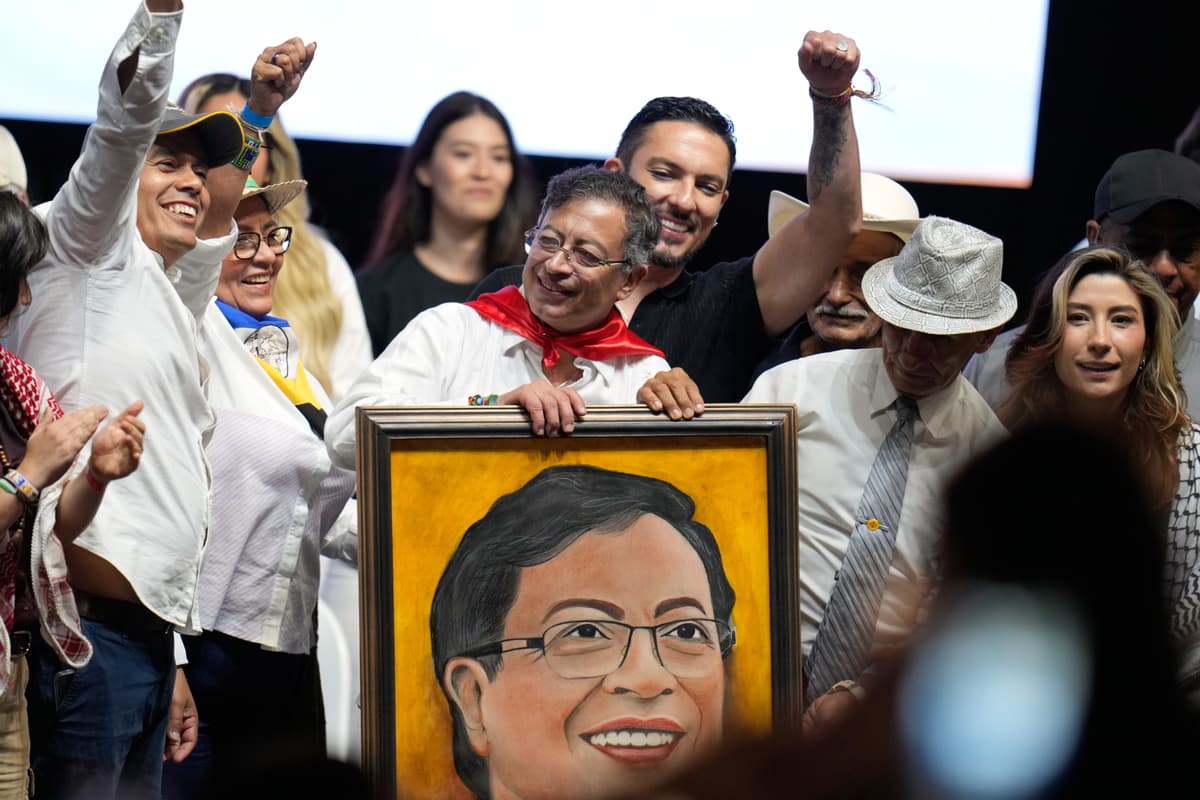President Donald Trump has announced plans to halt all foreign aid to Colombia, targeting the government’s anti-drug initiatives unless President Gustavo Petro takes more decisive action against drug production in the country. In a statement posted on Truth Social, Trump described Petro as an “illegal drug leader” and warned that the United States would intervene directly if Colombia fails to address its drug issues.
The tension between Trump and Petro has escalated since the former president’s return to the White House in January. Shortly after taking office, Trump imposed tariffs, sanctions, and visa restrictions on Colombia following Petro’s refusal to accept two migrant repatriation flights. Although Petro later agreed to allow the flights to land, the diplomatic friction continued to grow.
On October 9, 2023, Petro criticized Trump’s military actions in the Caribbean, which included bombings of boats suspected of drug smuggling. “There is no war against smuggling; there is a war for oil and it must be stopped by the world,” Petro stated, asserting that Trump’s aggressive approach poses a threat to all of Latin America and the Caribbean.
In recent developments, U.S. Secretary of Defense Pete Hegseth announced the destruction of a vessel linked to the Colombian guerrilla group Ejército de Liberación Nacional. This military action coincided with Trump’s allegations that Petro is not doing enough to combat drug production, which he claims accounts for approximately 90 percent of the cocaine entering the United States, according to the Drug Enforcement Administration (DEA).
In his social media post, Trump stated that drug production has become the “biggest business” in Colombia and accused Petro of failing to act despite substantial financial support from the United States. “The purpose of this drug production is the sale of massive amounts of product into the United States, causing death, destruction, and havoc,” he said, emphasizing the need for immediate action from Petro.
The Colombian president, who has a history as a former left-wing guerrilla, responded to Trump’s threats by pointing out the impact of U.S. military actions on Colombian sovereignty. On the same day as Trump’s announcement, Petro claimed that an attack on a supposed drug-carrying submarine actually resulted in the destruction of a fishing boat. “U.S. government officials have committed murder and violated our sovereignty in territorial waters,” he wrote on X, highlighting the case of a fisherman who had no ties to drug trafficking.
Colombia currently receives over $200 million in foreign aid from the United States each year, with more than $20 million specifically allocated for drug control efforts. While the precise amount of aid that Trump intends to cut remains unclear, the potential for significant reductions has raised alarms within Colombia.
Despite the pressure from Washington, Petro has shown little inclination to yield to Trump’s demands. Earlier this year, he advocated for the legalization of cocaine worldwide, arguing that the stigma surrounding the drug is rooted in its production location rather than its effects. “Cocaine is illegal because it is made in Latin America, not because it is worse than whiskey,” he stated, suggesting that a change in perception could help dismantle the international drug trade.
The ongoing feud between Trump and Petro reflects broader tensions between the two nations, with both leaders exhibiting strong personal disdain for each other. Petro’s public criticism of Trump’s policies and actions underscores the complexity of U.S.-Colombian relations as they navigate the challenges of drug trafficking and international diplomacy. With the future of foreign aid hanging in the balance, the coming weeks may prove pivotal for both leaders.






































































